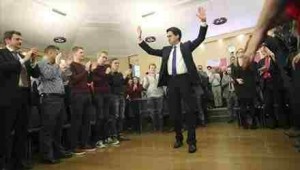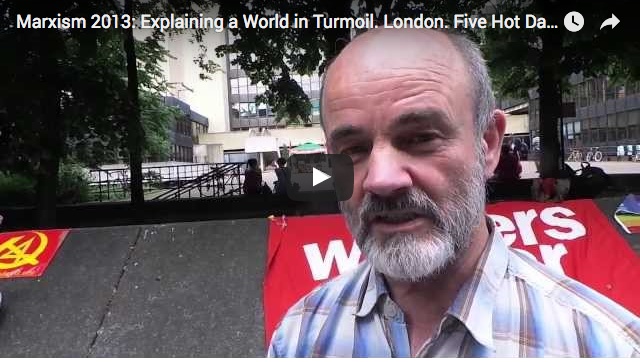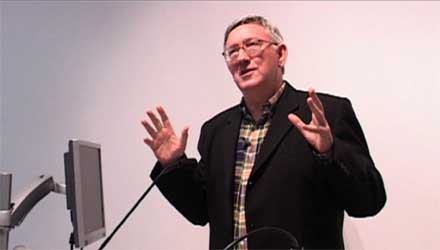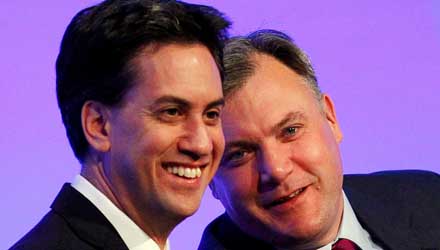Stan Keable of Labour Party Marxists looks at Andrew Murray’s rejection of the new LU party

Comrade Macnair wrote:
“Michael Ford” – a pseudonym for a “senior figure in the labour and trade union movement” – has written a critique of the Left Unity project in a two-part article, ‘Left Unity’s modest flutter’, available on LU’s website. The author is pretty clearly (from the content of the article) an ‘official communist’, and widely rumoured to be a Morning Star/Communist Party of Britain supporter who holds an appointed position in a trade union headquarters.
The article in effect lays out the working orientation of the Morning Star/CPB, which is held much more widely among Labour and trade union left officials than the formal size of the CPB would make it appear. The project is essentially of moving Labour slightly to the left, through alliance with ‘official lefts’ in the unions and the parliamentary Labour Party. At the same time, the Ford article also displays, in passing comments, that lurking within this is a ‘party concept’ of the sect type shared by the SWP.1
‘Michael Ford’ was indeed a pseudonym understandably adopted temporarily by the CPB’s Andrew Murray to avoid bringing down even more opprobrium on the Unite union, his employer. Comrade Murray came out publicly as the author on November 27 in a House of Commons committee room.
The meeting, chaired by John McDonnell MP, was organised by Red Pepper magazine under the title ‘Ralph Miliband and the politics of class’ – for the dual purpose of launching the 50th edition of the annualSocialist Register, subtitled ‘Registering class’2 and commemorating the political life of the socialist and Marxist father of the present leader of her majesty’s loyal opposition. Needless to say, neither ‘red Ed’ nor his brother, David, showed any interest in the meeting. Their father, Ralph Miliband (1924-94), was a founding editor of Socialist Register, along with John Saville (1916-2009).
In a footnote to his Socialist Register contribution, ‘Left unity or class unity? – working class politics in Britain’, comrade Murray explained how the article began life as Michael Ford’s ‘Left Unity’s modest flutter’:
This essay has evolved out of a polemic written against the ‘Left Unity’ project in Britain in spring 2013. The original text was published at http://21centurymanifesto.wordpress.com and it was republished, to its credit, by Left Unity itself at www.leftunity.org. The original was published pseudonymously in order to avoid the union, Unite, which I serve as chief of staff, being dragged into any public controversy on the issue at the time. At the time of writing (July 2013) the plan appeared to be to convert Left Unity into a new Left Party as of November 2013.3
While Ford’s polemic has “evolved” into Murray’s essay, his basic positions stand. Left Unity, he says, “fails to seriously address the issue of the Labour Party and working class support for it; ignores the failure of previous new left parties and indeed the real state of the contemporary left … and draws a causal connection between economic crisis and socialist politics which is at best questionable.” All sound criticisms, in my view, of the wishful thinkers of the Left Party Platform majority and leadership of Left Unity, who imagine they can win mass working class allegiance by challenging New Labour with old Labour politics, and tackle capitalism without winning the working class majority to Marxism.
Failures
Murray’s strategy of “reconstituting the working class”, in contrast, runs through building and channelling resistance to “the Tory-Liberal coalition’s policies of social misery” into yet another ‘next Labour government’ – ‘ignoring the failure of previous Labour governments’, to paraphrase Murray’s criticism of LU. As I pointed out at the November 27 meeting, the workers’ movement needs a Miliband Labour government managing capitalism like it needs a hole in the head.
Such a government would demoralise and demobilise our movement and, as before, lead back to an even more rightwing Tory government. Yes, we need socialists in parliament, but as tribunes of the people’s struggles, not as administrators of capitalism’s austerity. There is no concrete reason why the Labour Party cannot be won to socialist politics and the anti-working class, pro-capitalism right wing driven out. No doubt they will split anyway if the left gains ground – as they did before to form the Social Democratic Party in 1981, which went on to merge with the Liberals. The struggle to reconstitute the working class must be carried on in opposition to capitalist governments of any stripe, not in support of the wars and austerity programmes of our rulers, until our class is strong enough to take over.
Interestingly, Murray himself is extremely doubtful about the possible benefits of a Labour administration: “No-one … can confidently assert that it is likely that a 2015 Labour government will master the economic crisis in the interests of ordinary people …” But he very tentatively expresses false hopes that it might inadvertently aid the reconstitution of the working class: “… such a government could certainly generate – even in spite of itself – an arena of struggle over its direction which could bring benefits in itself in terms of strengthening the movement, and could create circumstances for the working class to recover a measure of confidence.” I am sorry to remind readers that there is no evidence for such a pipe dream.
Murray is also doubtful as to whether the fight to win the party for working class interests can be won. “It is certainly possible that the working class movement will learn through experience, over the next few years (and probably not much longer either way), that the struggle to ‘reclaim Labour’ is not going to work.” Perhaps the working class will fail to develop sufficient “‘social weight’ to sustain its own political project”, in which case socialists must “redouble their efforts” and, after “a definite period of unchallenged bourgeois political domination”, a “new mass socialist party, resting on a serious and durable foundation” may eventually be built. Or perhaps, on the other hand, “the effort will be thwarted by establishment manoeuvres, with what has been termed the ‘Blairite undead’, supported by a frightened elite, obstructing democratic and constitutional efforts to transform Labour which might have otherwise succeeded. … Under those circumstances, the creation of a new class party might be higher up the agenda.”
Worryingly, Murray’s hedging of bets corresponds to similar mixed messages from trade union bureaucrats Len McCluskey (Unite) and Paul Kenny (GMB), who have threatened to disaffiliate or limit trade union funding of the party if Labour’s front bench does not modify its policies from neoliberal austerity to Keynesian capitalism. Whatever Murray’s subjective wishes, such disaffiliation is more likely to depoliticise the working class than form the basis of a new socialist party. And support made conditional on minor modifications to party policy is the opposite of the extreme democracy the working class needs in order to rebuild its own movement and master society.
Murray quite correctly underlines that, although trade unions “cannot be the agency for establishing socialism”, nevertheless they are “the essential arena for reconstituting the working class, which is the only such agency”. But he puts forward no proposals for democratising the unions, for asserting rank-and-file control of the leadership, just as he says nothing about democratising the Labour Party. In the unions, he argues for the “overdue development of purposeful leadership” and “above all the re-emergence of … self-reliant, politically oriented activists at all levels”. Quite right. But these attributes are a by-product of the fight for the independent politics of the working class – instead of tailing pro-capitalist political careerists – and for democratisation of our organisations: freedom of discussion; election and recallability of officials; and a worker’s wage for our full-time representatives, so they are in it to serve, not to dominate.
The newly formed Left Unity party (LU’s founding conference was on November 30, after publication of Murray’s essay in Socialist Register 2014), Murray argues, “risks being an impediment to socialists actually making the most of present opportunities for working class reconstruction and advance” – meaning, of course, “the People’s Assembly movement, uniting unions and community campaigns against poverty and welfare cuts … alongside trade unions willing to fight back in the workplace”. Although he charges LU with the sin of prioritising “a chimerical ‘left unity’ over class unity”, it is actually Murray, not LU, who is posing one against the other. Unity of the left is, self-evidently, one of the essential conditions for the reconstitution of the class. Not bureaucratic unity, in which minorities are silenced, but democratic unity – freedom of discussion, unity in action – in which minority views are heard, differences understood and lessons learned.
New ‘vanguard’
For Marxists, it is axiomatic that theory and practice go together. In Murray’s case, unfortunately, theory is accommodating to practice, at least with respect to the party question. As a member of the Morning Star’s Communist Party of Britain and a self-described Stalinist, one might expect him to proclaim the unique leading role of the ‘official communist’ party to which he belongs. Instead he offers us a new concept: a “vanguard of a new type”, consisting of the three forces “united in the leadership of the Stop the War Coalition”, and now the People’s Assembly – namely his own CPB, Counterfire and Socialist Action, plus “the Labour left being additionally central”.
These are “all from different 20th-century traditions”. Their unity is “one not presupposing total ideological homogeneity – or even the ‘party’ in the sense which Marx and Engels used the term in 1848”:
These socialists do not agree, or even attempt to agree, about everything, have discrete organisational affiliations and do not subject themselves to a discipline more severe than respect for commonly arrived at decisions and comradely loyalty. The objective is unity for purposeful intervention on the key issues of the time – anti-imperialism, opposing the social calamity of austerity economics – and for building rooted movements for change, re-establishing the basis for mass socialist politics, while tolerating diversity of opinion about … the long-term prospects of the Labour Party.
So, to lead the working class struggle, instead of ‘left unity’ meaning democratic unity in a mass workers’ party organised around Marxist political programme to supersede world capitalism, Murray has lowered his sights to a much more limited horizon – a small group of sects coming to a bureaucratic consensus in order to lead “movements for change” on “key issues of the time”. And whoever dissents from the agreed consensus of these ‘leaders’ is obviously being divisive. Eg, Ken Loach’s “notably sectarian intervention” at the People’s Assembly. To turn the PA into an anti- Labour movement, Murray writes, “is a route to undermining its potential as an instrument of the necessary class reconstruction which can be the only underpinning of any advance”. So much for “tolerating diversity of opinion”!
The central aim of transforming the Labour Party into “an instrument for working class advance and international socialism” can only be achieved if the trade unions on which the party is based are also transformed, and this will require “the closest unity of the left inside and outside the party”.4 If the new Left Unity party is serious about overcoming capitalism, it will have to join the struggle to transform Labour. Similarly, if the Labour Representation Committee is serious about its constitutional aim of encouraging “all socialists outside the Labour Party … to join or rejoin the Labour Party”, it will have to take seriously, and encourage, all genuine steps towards left unity outside Labour as well as inside.
Notes
1. ‘Left Unity’s contradictory aspirations’ Weekly Worker supplement, November 28 2013. The original two-part Michael Ford article is athttp:// leftunity.org/left-unitys-modest-flutter; and http://leftunity.org/left-unitys-modest-flutter-2.
2. L Panitch, G Albo and V Chibber (eds) Socialist Register 2014Monthly Review Press.
3. Socialist Register 2014 p286. Murray helpfully gives a number of references to relevant articles in previous editions of Socialist Register: Ken Coates’s ‘Socialists and the Labour Party’ (1973); Ralph Miliband’s ‘Moving on’ (1976); Duncan Hallas’s ‘How can we move on?’ (1977); Leo Panitch’s ‘Socialists and the Labour Party: a reappraisal’ (1979).







